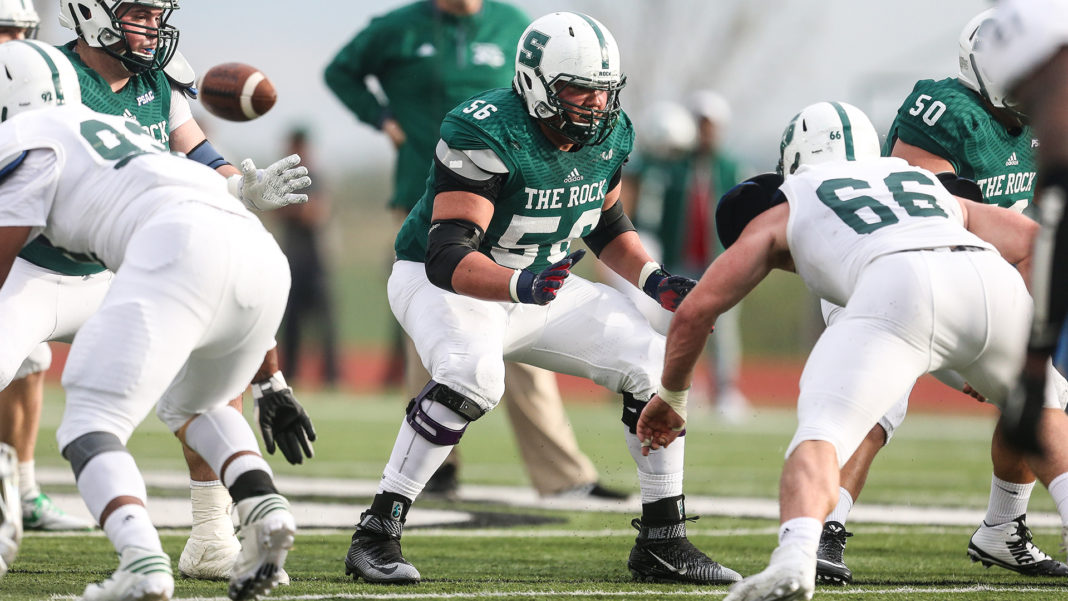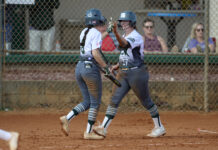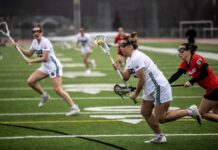In Japan, if you stand at six feet tall, you’re going to get some looks while walking down the street. If you’re 6-4 and weigh 315 pounds, they’re going to think you’re a sumo wrestler. At least, Ian Park is often mistaken for a sumo wrestler.
Nope, he’s just the starting left guard for the Lixil Deers — the Deers being based out of Chufo, Tokyo, Japan.
Starting for the Deers is the culmination of a long, winding road from Upper St. Clair High School to Northwestern University to Slippery Rock University to the Philadelphia Eagles minicamp to the Baltimore Brigade (only for a week) to finally settling in Tokyo — hopefully for a while now.
However, this story begins in Philadelphia, rubbing elbows with Hall of Famers and being bull rushed by some of the best.
Philadephia Eagles minicamp, 2018
After leaving Northwestern in 2017 because of eligibility issues stemming from a couple of injuries during his time as a Wildcat, Park wound up playing his final collegiate season in Slippery Rock. A Division II All-American, who didn’t allow a single sack during his year-long stay in small-town PA, Park earned an invite to the Eagles’ minicamp. A real NFL chance with the defending Super Bowl champs.
“It was a dream come true,” Park said. “Just because of my history of injuries, I didn’t know if it would be possible. [The Eagles] were coming off a Super Bowl, and I was in the room with Hall of Famers — I had practice with Hall of Fame guys — and it was just cool to see how they operate on a day to day basis.”
In an offensive line room during camp with guys like Lane Johnson, Jason Kelce, Brandon Brooks and Jason Peters, Park was learning from some of the best in the business. However, that meant on the other side of the ball, guys — maybe beasts is the more appropriate word — were just waiting for rookie linemen trying to earn a spot on the team.
That meant five-time Pro Bowler — 2018 first-team All-Pro defensive lineman — Fletcher Cox was waiting for Park. It… well, went about as expected.
“My guard got beat,” Park explained, “he got blown back, and there was a pile behind me. Fletcher [Cox] gave me a bull rush, and I went down. But on the first hit, I thought I had him… I didn’t.”
It was the NFL, a cutthroat business with the best players on the planet, and those kind of things are the norm for first round picks and undrafted free agents alike. Park was just happy to be a sponge, soaking up as much knowledge as possible.
Park learned from Chris Long and Michael Bennett, got to know Super Bowl hero Nick Foles (a pretty cool guy), but the best was learning from Eagles’ offensive line coach Jeff Stoutland. The techniques he learned from Stoutland have been put to good use, even if it wasn’t originally how Park expected.
In the end, the fairytale came to an end as a concussion saw Park’s name on the injury report before finally being cut during preseason. While Park wishes he could have stuck around, he’s glad he got the chance to just go; the experience made him a better lineman and prepared him for his next opportunity.
However, unlike most undrafted Division II prospects who wind up not making the roster, Park found a way to make a name for himself. It just didn’t come through football.
A viral video of Park singing the Halo theme song found its way to the Eagles’ social media sites, gaining millions of views for his opera-like rendition of the popular XBox game’s theme.
“It was right after rookie minicamp, I had been there for maybe three days, and the media had come up to me in the locker room and asked me if I could do [the Halo theme song] for them,” Park said. “I did it, no one was around.”
The “performance” came before the veterans were around when just the rookies were at camp. It wasn’t until the first team meeting when the rookies and vets mixed that Park started to get looks. He said it started with a look and turned into a laugh.
Even Eagles head coach Doug Pederson had to get in on the fun.
“We had a practice at Lincoln Financial Field, I was walking into the tunnel, and coach Pederson looked at me — I don’t who he was talking to, media or something — and he just starts the, ‘Ooooh oh ooohhh.’ He just looks at me and starts singing [the theme song].”
While Park’s role as “the Halo guy” may have earned him a few fans across the NFL fandom, it’s ultimately proven to be a bit embarrassing. He’s a football guy first and foremost, yet even some of his teammates pull up the video now when he meets new people. It’s one of the first links that pop up when you search “Ian Park”.
It’s a memory from a time in Philadelphia where Park experienced a lot, learned even more, but ultimately moved on.
Finding a way to the X-League, 2019
The X-League, the top flight of professional American football in Japan since 1971, only employs four international players per team, typically two on offense and two on defense. It’s not easy to get a chance to play out in Japan, usually requiring an endorsement from a respected mind in the industry.
Park sent the Lixil Deers an email, and it worked.
“I went on the X-League website, I looked up teams — the rule is you can only have two [international] players on offense and two on defense — and searched for teams,” Park said. “I found an opening, well, I didn’t find an opening, I perceived there to be an opening with the Lixil Deers. I sent them an email, and they responded to me the next day.”
OK, let’s back up really quick first.
Park’s brother, Alex, played college football at Dartmouth University in the early 2010s, and through a connection that Dartmouth had forged with the X-League, Alex was getting looked at by teams in Japan. He didn’t accept any offers, but he did point his younger brother in the direction.
Flash forward to Park’s time in Philadelphia, while he was on the IR, he was scrolling through YouTube in his hotel room one night and the X-League popped into his mind.
“I thought to myself, ‘I’d love another opportunity to go to the NFL and keeping playing,’ but the reality was that I didn’t have any tape, I got hurt in camp, and when you have no tape it’s hard to get back into the league,” Park said.
Park took a detour on the way to the X-League, signing with the Baltimore Brigade in the Arean Football League in April 2019. But with the X-League still in the back of his mind, he decided to quit after a week, before playing his first game. It’s an X-League policy that if a player plays a regular season game in another professional league, that player is exempt from signing in Japan.
As Park sees it, it would be like Adrian Peterson signing in the X-League; it’s to keep parity among teams.
Right, back to the timeline.
After sending some emails to X-League teams, Park honestly didn’t expect to hear back. But after Lixil got back to him, he was flown to Atlanta — where the Deers head coach has an office — for some meetings and an interview. The interview went well and after seeing some game tape — from Slippery Rock, of course — Park was flown out to Japan and eventually offered a contract.
The chance of a new experience in a brand new land was a huge opportunity for Park, but the decision to ditch the AFL for the X-League also came down to money. Gotta make a living somehow.
Aside from having games every other week, which means a bye week every other week, and the chance to have fun in Japan, the money in the X-League is pretty good. For Americans at least.
Life in Japan, 2020
Park has been able to cross two mountains in Japan off his hiking list: Mt. Fuji and Mt. Takao. The hiking list may also stop at two after the experience on Mt. Fuji.
After a seven or eight hour trek up Mt. Fuji, through the night, Park reached the top to find clouds obscuring the view and rain beating down. His reward for reaching the summit? Another four hour hike back down.
Park still frequents amusement parks and the batting cages (Japan has a strong baseball culture), but perhaps the best part of life in Japan, he finds himself just walking around.
“I look at things I’ve never seen before, like just the way the buildings are built, the people, the lights,” Park said. “There are so many things I could say, just exploring new areas.”
One of the best parts about being in Japan — Tokyo especially — is the food.
“The food is really good,” Park said. “The sushi here is fantastic; I’ve had the sushi in Pittsburgh, it’s… ehhh,” Park said. “Even if you’re not a fish guy, you come out here, with the freshness. It’s just better.”
Of course, it’s not all fun an games in Japan. Actually, it’s a lot business. A loooot of business.
Up until the last decade, the X-League was literally a business. Players were contracted by the team’s sponsor, being paid to work for the company while playing football on the side.
Some teams in the league have begun transitioning to club teams. Most Americans are brought out to Japan purely to play football, Park said. That’s the case for him, which is a situation he couldn’t be happier about. The same can’t always be said for native players.
“The Japanese players are not paid to play … does that make sense?” Park asked. “Can you believe that? When we’re not playing a game, we have practice Saturday, Sunday and Wednesday. These guys come out and they play and they work full time.”
The worker mentality, the business-like approach to life permeates the American football culture in Japan. Japanese players work long hours and sometimes spend even longer hours out on the field.
Park has a helluva lot of respect for his Japanese teammates.
Unexpectedly, the football culture in Japan is different than in the United States. According to Park, for one it’s smaller. But damn if it isn’t passionate.
“[The fanbase is] small, but it’s strong. College football is pretty popular here too,” Park said. “I had an opportunity to go to the national championship last year; it was about 40 or 50 thousand people in a baseball stadium. It was interesting.”
College teams in Japan typically practice from 5 p.m. until 9 p.m. six days a week. After practice meetings can sometimes keep players at the facility until at least midnight.
“The rules are the same, but their football culture is a little bit different than America,” Park said. “For example, I’ve been to several college games, visited college practices, the culture and the work culture, with people in their regular jobs, it kind of carries over to the football culture. That mindset of working hard and putting in long hours.”
With the NCAA in place in the United States, practices are strictly limited and enforced. With no such party in Japan, practices can go for as long as they want, whenever the want. And it’s fully padded, hard-tackling practice, too.
For Park with the Deers, every weekend practice feels almost like a minicamp in the United States. It’s grueling but fun; he loves it. He still tries to find ways to cut practices shorter, but he said no one ever listens to him.
The Deers’ first game is just weeks away now, slated for Nov. 3, and Park is gearing up for his second season now with the team. After adjusting to the language barrier last season, which was helped by most of the football terms being said in English, the offense is using a lot of numbers and signals this season — which helps him out.
All Park has to do make sure he has Japanese numbers memorized, but he admitted that when he’s gassed in the huddle, it isn’t hard to forget a word or two. He’s slowly learning the language. If he has it his way, maybe he’ll pick up a bit more as time goes on.
“As long as I’m feeling good, and I can get an opportunity, I’m going to [stay out here],” Park said. “It’s a year by year thing for me; I’d like to be here next year.”
It’s been a long road to Tokyo, but Park is happy. He’s playing football, he’s eating sushi and he’s exploring a new land.
He’s living the American dream in Japan.









